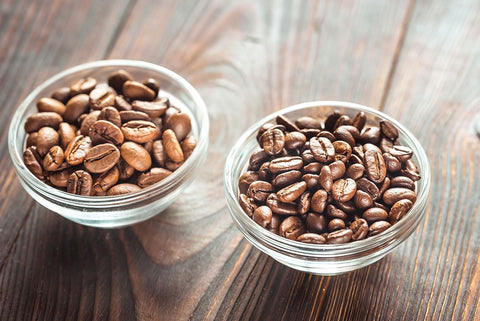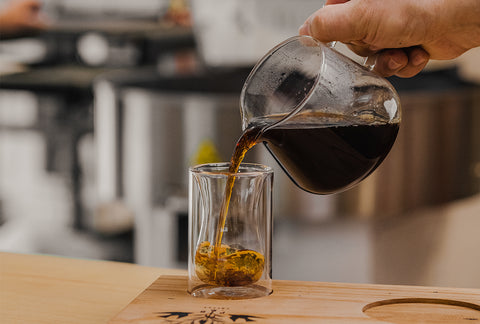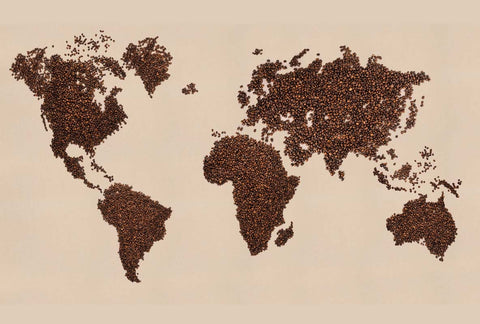
At Pax & Beneficia, we recognize that every step of coffee production is important. That’s why we have our in-house roastery and pay meticulous attention to the roasting process, hire experienced and passionate baristas to personalize each cup of coffee to your liking, and use high-quality coffee beans. We recognize that every step of the process can affect how your cup of coffee tastes, and it starts with the type of beans that are utilized. Although there are various types of beans, the two most popular varieties are arabica and robusta.
Arabica vs. Robusta Coffee Beans
Although arabica and robusta coffee beans are so popular today, many people don’t know the actual differences between them, which includes their taste, growing environments, and quality.
Arabica Coffee Beans

Arabica coffee beans come from the Coffea Arabica plant, which originated in Ethiopia. The production of arabica beans is more complex than robusta beans because the plant requires more nutrients and is more susceptible to pests and poor handling. Due to their fragile nature, they require high elevation, subtropical climates, and a balance of both sun and shade. For this reason, arabica beans are typically grown in countries near the Equator, such as Indonesia, Eastern Africa, Brazil, Colombia, Vietnam, Mexico, and Ethiopia, among others.
Although they can be either hand-picked or pulled using harvesting equipment, high-quality arabica beans are hand-picked to ensure that the beans are ready to be harvested. This is one of the factors that differentiates high-quality arabica beans from the rest. For instance, one of the reasons why Colombian Arabica beans are famous for being so flavorful and delicious is because their beans are hand-picked and typically produced on small family-owned farms, rather than some countries that overproduce and sacrifice quality.
Aside from growing conditions, the flavor of arabica beans are typically sweeter due to their natural lipids and sugar content. They have a wide range of underlying flavors depending on where and how they are grown, including fruity, caramely, chocolatey, and nutty undertones.
Robusta Coffee Beans

Robusta coffee beans come from the Coffea Canephora plant and originate from Sub-Saharan Africa. They are known for being resilient, as they can better resist pests and disease when compared to other types of coffee; this is likely due to their high caffeine content. They typically grow in low altitudes, but have the advantage of being able to grow in diverse climates, with its main growing regions being Africa, Indonesia, and India. Since this bean is easier and cheaper to cultivate than arabica beans, they are typically cheaper to purchase.
Their easy production and ability to grow in diverse conditions are among the reasons why many farmers choose to grow robusta coffee beans. However, their taste is usually less desired than arabica beans due to their high caffeine content and low amount of natural sugars. Although they are often characterized by their bitter taste, they can also have deep flavor notes, including dark chocolate, nuts, and even whisky. Many claim that they prefer robusta beans for espresso because of their ability to produce better crema, which is the creamy layer that can be found on top of espresso shots.
Arabica vs. Robusta: Which Is Better?

There is no right or wrong answer to this, as everyone has a preference. That said, the majority of people tend to prefer arabica coffee beans over robusta because of the smoother flavor. We should also point out that production and quality play a big role in flavor. For instance, a high-quality organic robusta bean will likely be better than low-quality arabica beans, and vice versa.
At Pax & Benefica, we keep quality in mind throughout the entire coffee production process. By using the best quality beans and supporting local businesses and small, family-owned farms from around the world, we feel confident that we can provide a great cup of coffee, from farm to roastery to you.



